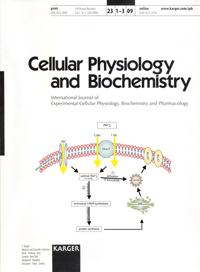
“Gastric cancer (GC) is the most common malignancy and third leading cause of cancer mortality worldwide. The identification of a sensitive biomarker as well as effective therapeutic targets for the treatment of GC is of critical importance. microRNAs play significant roles in the development of cancer and may serve as promising therapeutic targets.
RESULTS:
In the present study, it was demonstrated that the cannabinoid receptor 1 (CB1R) was overexpressed, and miR-23b-3p and miR-130a-5p were downregulated, in GC cells. In addition, the results revealed that these effects are associated with malignant biological behaviors exhibited by GC cells. Furthermore, miR-23b-3p and miR-130a-5p may regulate CB1R expression via the Wnt/β-catenin signaling pathway.
CONCLUSION:
Our results suggested dysregulation of CB1R expression is closely related to the malignant biological behavior of gastric cancer cells. miRNA/CB1R-based therapy may represent a promising therapeutic strategy for the clinical treatment of GC patients.”



1582-4934/asset/jcmm_large.jpg?v=1&s=7674b5c17e2bcbb5a84b43d19c1eee77fb28c804)




